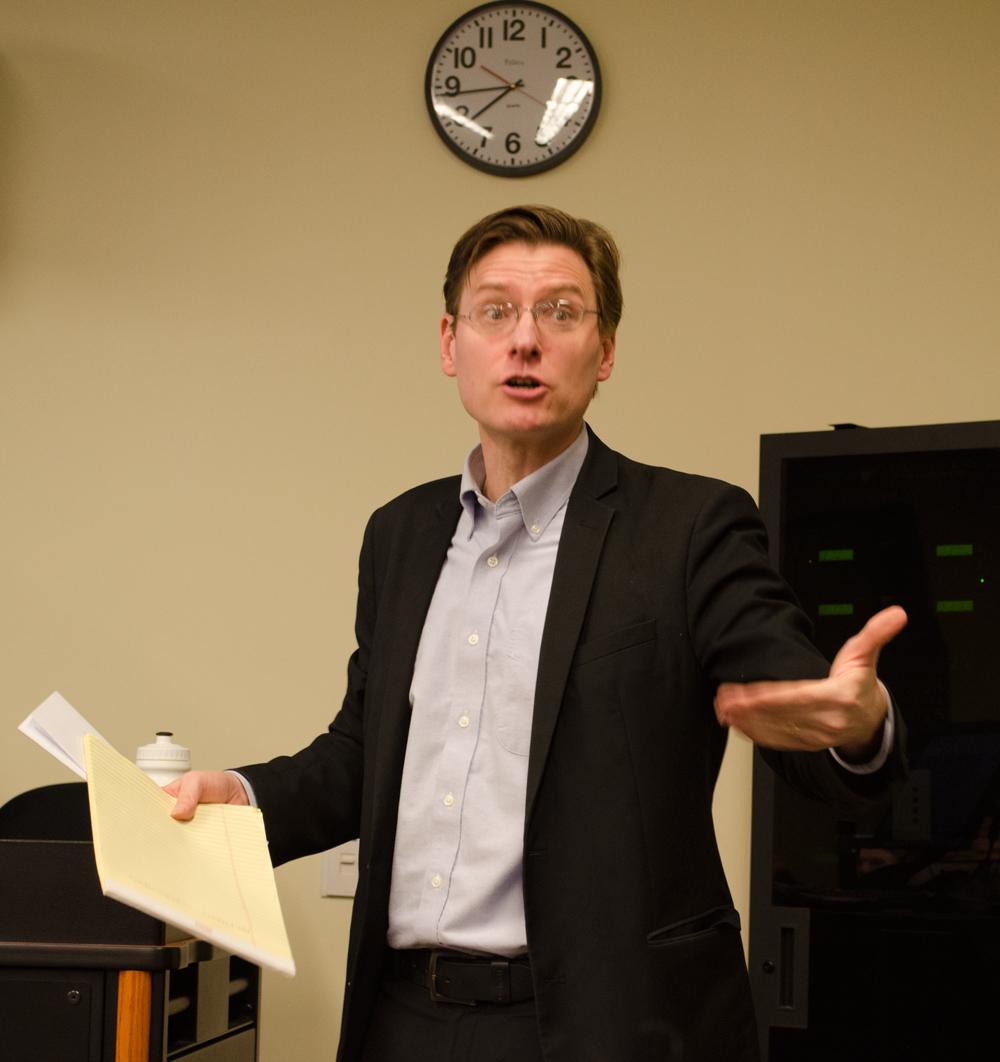Faculty and students are coming together to address controversial campus issues, such as the erosion of faculty governance and the rising tuition costs.

Conversation surrounding these problems stemmed from a forum titled, “Whose University Is This?” held Nov. 10 in Room 114 of Belk Library and Information Commons. The event was organized by two Appalachian State University professors, Michael Behrent and Greg Reck, with the American Association of University Professors.
The ultimate goal of the forum was to find ways to foster a cooperation between students and professors to solve the problems hurting Appalachian.
“I think that [students] are often treated in a university like this as consumers,” said Behrent, an associate professor of history department and AAUP chapter president. “It’s important to think about [how] the American education system and universities were all founded upon the notion of creating citizens for a democracy.”
Reck, anthropology professor and AAUP chapter vice president, said a major problem at Appalachian is an erosion of faculty governance in recent years. Faculty members used to have a critical role in decisions regarding personnel, the curriculum, and the budget, but they have lost power, he said. He cited growing bureaucracy as the primary reason for this.
“Important decisions about personnel and curriculum are taken out of the hands of faculty and put in the hands of committees or taskforces and are created by these bureaucrats and are stacked from the very beginning,” Reck said.
Despite Reck’s criticisms, Andy Koch, chair of Faculty Senate, said Appalachian’s issues of faculty governance are improving.
“What I do not think came through as clearly as it should have [at the forum] is that the university has taken major steps to address all of those concerns,” Koch said.
Koch said the faculty has historically had a prominent say in the curriculum, with the exception of the past few years. The university is in the process of rectifying the situation by rewording the faculty handbook. By more clearly defining the role of the faculty in the handbook, Koch said the university can take steps to make sure their power isn’t undermined.
“A lot of the situations thrown out [at the forum] with regards to governance are things that have been on the senate agenda, and we’re working with the administration to fix them,” Koch said.
Zach Kopkin, senior anthropology major, criticized the university for the rising tuition.
Kopkin said Appalachian’s tuition has increased 61 percent in the last five years and 264 percent since 1980.
“For those of you who might be freshmen, you’re going to end up paying about $7,000 more than I had to pay for my education,” Kopkin said at the forum.
Wyatt Wells, the director of student accounts, said although the university does have some influence over tuition, for the most part it is a statewide issue.
“North Carolina state law requires that the UNC Board of Governors set tuition rates consistent with the actions of the General Assembly,” Wells said.
Wells said outside factors impacting tuition include the availability of State General Fund Revenue available to the university, analysis of student debt levels, and the availability of student financial aid.
However, the university does have some ability to influence the campus-based portion of tuition, by requesting increases in the tuition in accordance with the UNC policies.
Koch said the university has acknowledged the problems facing it, and is doing its best to rectify them.
“We saw many aspects erode for a few years,” Koch said. “We are now seeing those relationships rebuilt.”
Story: Thomas Culkin, News Reporter
Photo: James Johnston, Intern Photographer
